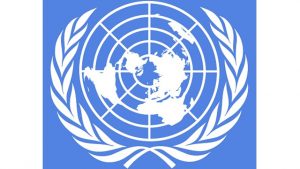 DAVOS, Switzerland (CMC) — The Executive Secretary of the Economic Commission for Latin America and the Caribbean (ECLAC), Alicia Bárcena, is calling on regional countries to cooperate with China in key areas to boost development.
DAVOS, Switzerland (CMC) — The Executive Secretary of the Economic Commission for Latin America and the Caribbean (ECLAC), Alicia Bárcena, is calling on regional countries to cooperate with China in key areas to boost development.
Speaking at the World Economic Forum (WEF) here, Bárcena urged that this cooperation involve, among other things, infrastructure, energy and “especially, agriculture, since the regional potential for agricultural and food production could meet the Asian country’s demands.”
“We must expand and diversify our economic relations,” stressed the regional organisation’s most senior representative in participating in the session, titled ‘China’s Pivot to World Markets”.
She referenced an ECLAC document that coincided with a visit last November by Chinese President Xi Jinping at ECLAC’s headquarters in Santiago, Chile.
There Jinping participated in a media summit with the aim of bringing about greater cultural rapport with Latin America and the Caribbean, ECLAC said.
Bárcena said China has delineated a strategy of links with the region based on trade, investments, financing and cooperation, with six priority areas: infrastructure, transportation, energy and natural resources, industry, science and technology, and agriculture.
In this last sector, Bárcena said China, with 1.3 billion inhabitants and just seven per cent of the world’s arable land and six per cent of its water resources, “represents a market with great potential” for the region.
Bárcena said the region, through the Community of Latin American and Caribbean States (CELAC), has also taken steps toward building a strategic trade relationship with China.
The ECLAC executive secretary underscored that the trade of goods between Latin America and the Caribbean and China expanded by 23 times between 2000 and 2013, “although two years of declines followed that”.
Despite this, Bárcena noted that the “Asian giant” displaced the European Union in 2014 as the region’s second-biggest trading partner, exceeded only by the United States.
However, Bárcena said the export basket is concentrated in five products that together represented 69 per cent of the value of the region’s shipments to the Asian country in 2015.
In the area of investments, she stressed the quantitative leap that the Asian country experienced in 2010 when, in that year alone, estimated Chinese foreign direct investment in Latin America and the Caribbean rose to 14 billion dollars, doubling the cumulative figure from the prior two decades (1990-2009).
During her participation at the WEF, Bárcena also participated in panels on policies for inclusive productivity, and on economic growth and social inclusion in Latin American and the Caribbean.
